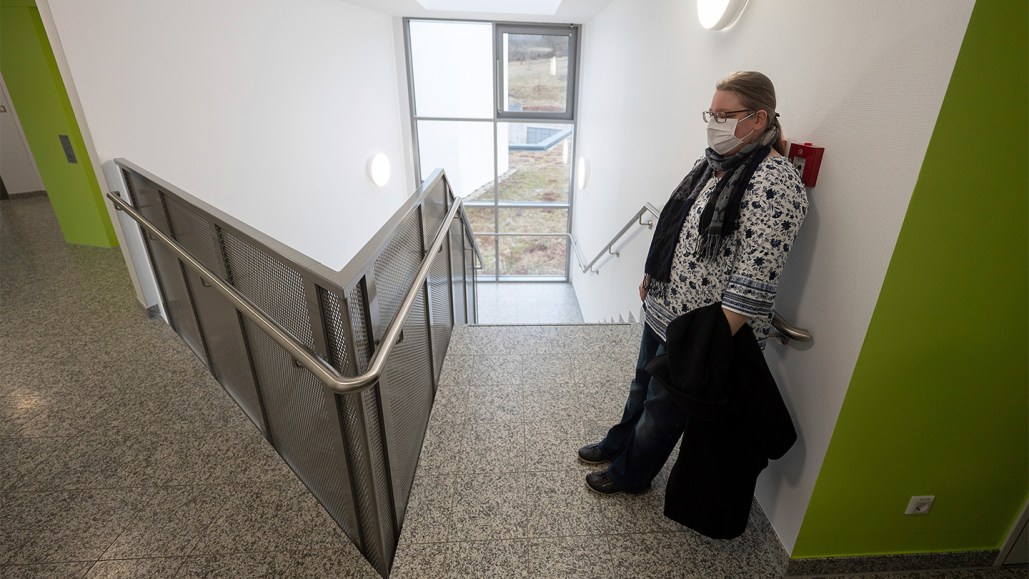Errant Antibodies Could Be Behind Certain Long COVID Symptoms

Rogue antibodies may be to blame for some of long COVID’s pernicious symptoms.
Two new studies suggest that antibodies that attack people’s own tissues might cause ongoing neurological issues that afflict millions of people with the disease.
When scientists transferred these antibodies from people with long COVID into healthy mice, certain symptoms, including pain, transferred to the animals too, researchers reported May 31 on bioRxiv.org and June 19 on medRxiv.org.
Though scientists have previously implicated such antibodies, known as autoantibodies, as suspects in long COVID, the new studies are the first to offer direct evidence that they can do harm. “This is a big deal,” says Manali Mukherjee, a translational immunologist at McMaster University in Hamilton, Canada, who was not involved in the work. The papers make a good case for therapies that target autoantibodies, she says.
Science News has partnered with Trusting News to gather feedback on the potential use of AI in journalism. Currently, we do not publish any content produced by generative AI (see our policy). We do want to hear your views on how Science News could use AI responsibly. Let us know by participating in a short 10 question survey.
The work could also offer “peace of mind to some of the long-haulers,” Mukherjee says. As someone who has endured long COVID herself, she understands that when patients don’t know the cause of their suffering, it can add to their anxiety. They wonder, “What the hell is going wrong with me?” she says.
With more than 200 documented symptoms that can mix and match in seemingly endless mélanges, long COVID is an especially difficult disease to crack (SN: 6/12/24). “Teasing out the mechanisms that lead to these symptoms has been the real challenge,” Mukherjee says.
Some clues so far have pointed to autoantibodies. These can ramp up in the blood during a SARS-CoV-2 infection, but their levels often dial back down as a person recovers. In people with long COVID, though, scientists have shown that autoantibodies can stick around long after the initial illness has passed.
But research so far hasn’t revealed “whether these autoantibodies are mere bystanders or active contributors to long COVID symptoms,” wrote bioRxiv.org study coauthor Hung-Jen Chen of the Amsterdam University Medical Center and his colleagues.
“Teasing out the mechanisms that lead to these symptoms has been the real challenge.”
Working independently, Chen’s team and immunologist Akiko Iwasaki’s group at Yale University each collected antibodies from dozens of people with and without long COVID, injected those antibodies into mice and then tested the animals’ behaviors.
Antibodies that came from patients who reported dizziness caused a noticeable loss of balance in mice, Iwasaki found. And both groups discovered that long COVID antibodies could make mice more sensitive to pain. In an experiment by Iwasaki’s group that tested the animals’ ability to tolerate standing on a hot plate, mice that received antibodies from long COVID patients showed signs of pain after about seven seconds, compared with about 10 seconds in mice that got antibodies from healthy people.
Those mice that became extra-sensitive to pain largely had received antibodies from patients who themselves had chronic pain, Iwasaki’s group reported. That enhanced sensitivity could be due to antibody attacks harming nerves. After injection, the mice developed damaged nerve fibers in the skin.
Scientists have proposed many hypotheses for what causes long COVID, including SARS-CoV-2 virus lingering in the tissues and the reawakening of dormant herpes viruses (SN: 3/4/24). Those elements may still play a role in some people’s long COVID symptoms, but for pain, at least, rogue antibodies seem to be enough to kick-start the symptom all on their own. It’s not an out-of-the-blue role for autoantibodies; scientists suspect they may also be involved in other conditions that cause people pain, including fibromyalgia and myalgic encephalomyelitis/chronic fatigue syndrome.
But if doctors could identify which long COVID patients have pain-linked autoantibodies, they could try to reduce the amount circulating in the blood, says Iwasaki, who is also a Howard Hughes Medical Institute investigator. “I think that would really be a game changer for this particular set of patients.”




